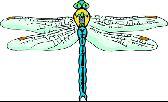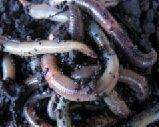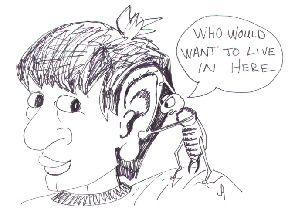Natural Solutions to Things That Bug You (79 page)
Read Natural Solutions to Things That Bug You Online
Authors: Myles Bader

DAMSELFLIES
General Information:
These look like a smaller dragonfly and prefer insects that have soft bodies. They can stand motionless in the air like a mini helicopter and just pluck aphids and scale off plant leaves.
They normally only look for prey during the day and like to look for their meal near a body of water. If they find an area that has mosquito larvae they will literally gorge themselves.
DECOLLATE SNAILS
SNAIL HUNTER
 There is a small snail that will hunt other snails and kill them. The decollate snail is somewhat smaller than the average snail and has a shell that resembles a seashell. It is a natural enemy of the brown garden snail and has the same habits as the brown snail. When it runs out of snails it will eat decayed leaves and help clean up the garden. It does need a source of moisture to survive. Poisons will kill this snail so try and avoid them, if you have a number of these snail hunters in your garden.
There is a small snail that will hunt other snails and kill them. The decollate snail is somewhat smaller than the average snail and has a shell that resembles a seashell. It is a natural enemy of the brown garden snail and has the same habits as the brown snail. When it runs out of snails it will eat decayed leaves and help clean up the garden. It does need a source of moisture to survive. Poisons will kill this snail so try and avoid them, if you have a number of these snail hunters in your garden.
DRAGONFLIES
General Information:
 Dragonflies may be called by a number of different names such as horse stingers, darning needles or mosquito hawks. They are very fast and few prey, can avoid them when they are chasing them down. They grab their prey by using their hairy legs and look like they are carrying a shopping basket.
Dragonflies may be called by a number of different names such as horse stingers, darning needles or mosquito hawks. They are very fast and few prey, can avoid them when they are chasing them down. They grab their prey by using their hairy legs and look like they are carrying a shopping basket.

They cannot wait to dine and eat their victims while they are flying by sucking the fluids from them. They have been known to eat their own weight in 30 minutes or less. Their leg baskets are capable of carrying up to 100 mosquitoes, which is one of their favorite meals.
The dragonfly begins its life under water and then enters the air world for the majority of its life. It has an insatiable need for flying insects almost as if it a challenge for it to catch them. If you have them in your yard just hope that they remain!

EARTHWORMS
General Information:
 These are really one of the best good guys. They eat through the earth digesting organic matter and some minerals and turn them into better, more usable soil. The worms can also attract birds, which consume insects. If you don’t have earthworms it would be best to order some. If you use chemical fertilizers or pesticides that are used to kill snails or slugs, they will also kill the earthworms.
These are really one of the best good guys. They eat through the earth digesting organic matter and some minerals and turn them into better, more usable soil. The worms can also attract birds, which consume insects. If you don’t have earthworms it would be best to order some. If you use chemical fertilizers or pesticides that are used to kill snails or slugs, they will also kill the earthworms.
EARWIG
Identification:
 They are about ¾ inch long, brownish-black with a pincer on their rear end. They have very small wings that are almost useless and will lay white round eggs in the soil.
They are about ¾ inch long, brownish-black with a pincer on their rear end. They have very small wings that are almost useless and will lay white round eggs in the soil.
General Information:
They are fairly beneficial since they enjoy feasting on aphids and many other pest bugs. They clean up a lot of decayed materials and are active at night. When they are cleaning up the leaves and such, they find pests and kill them. If you don’t want them around they can be eliminated using one of the following methods.

Rumor is that earwigs will crawl into your ear while you are sleeping. This is not true and they will not harm you even though they look menacing.
SAFETY FIRST
If they get into the house, one of the best repellants is to use diatomaceous earth placed around baseboards and windowsills. This will last a long time and still be an effective natural killer.
DAILY NEWS TO THE RESCUE
If you want to trap earwigs, just lightly spray a newspaper with water and then roll it up loosely and place it near an area that you have earwig activity. Allow it to remain overnight, then remove it and place it into a well-sealed container for disposal. Since they are beneficial this is only used inside a house.
OILING AN EARWIG
To make an earwig trap, just use a straight-sided container and fill it half full with canola oil. Leave wherever the problem exists and clean out whenever it has sufficient earwigs in it. The oil can be re-used. Use only if you are overrun with them.
GIVE THEM A HOME
If you place a small amount of dry moss in a few matchboxes and hang them from sticks around the plants they will climb up in them to spend the night and you can dispose of them every morning.


BANTAM HENS LOVE EARWIGS
Bantam hens will hunt for earwigs all day and will consume large quantities of them as well as other pests. They may peck at a few pieces of veggies or fruit but they do more good than harm.
FLIES
The following flies are not available through mail order insect houses. However, you may want to be aware of them so that you will leave them alone and allow them to do their job.